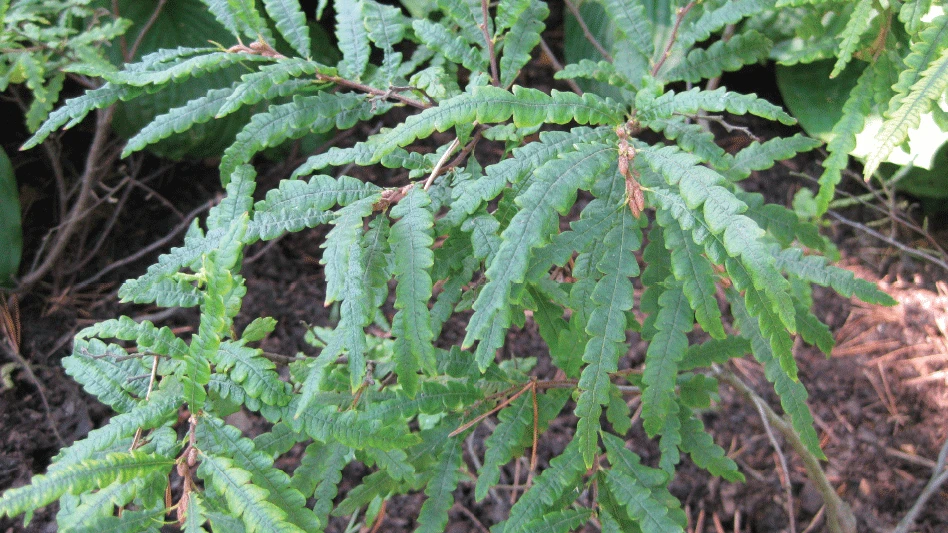 Tax assessors in Erie County, Pennsylvania, have bucked a state trend and chosen to tax Fairview Evergreen Nurseries’ hoop houses as real property. The majority of counties in the state view hoop houses as temporary structures, which are not subject to property taxes. But Erie County chose to interpret hoop houses a different way, and nurseries, as well as other agriculture segments, could face a high tax bill.
Tax assessors in Erie County, Pennsylvania, have bucked a state trend and chosen to tax Fairview Evergreen Nurseries’ hoop houses as real property. The majority of counties in the state view hoop houses as temporary structures, which are not subject to property taxes. But Erie County chose to interpret hoop houses a different way, and nurseries, as well as other agriculture segments, could face a high tax bill.
With the assistance of Mike Pechart, executive deputy secretary of the Pennsylvania Department of Agriculture, Sen. Elder Vogel (R-Beaver Co.), chairman of the Senate Agriculture and Rural affairs Committee, has agreed to sponsor a bill that would clarify the temporary nature of high tunnels for taxing purposes. Senators Vogel and Dominic Pileggi (R-Chester Co. and Delaware Co.) have been securing other sponsors for the bill.
“We’ve got some great legislative support, as well as tremendous support from the entire ag industry in Pennsylvania,” said Gregg Robertson, president of the Pennsylvania Landscape & Nursery Association. “We’ve been successful in raising the alarm with the Department of Agriculture and other agricultural groups. The use of high tunnels has become widespread in Pennsylvania agriculture due to their ability to extend the growing season and their reasonable cost.”
 At press time, PLNA and the other interested parties were helping craft language for the bill, including a definition of a high tunnel/hoop house/poly house. Part of the language states high tunnels have “a flexible covering” and “can’t have a continuous perimeter foundation.” The definition likely will include specific uses such as plant propagation and growing, and storing ag products.
At press time, PLNA and the other interested parties were helping craft language for the bill, including a definition of a high tunnel/hoop house/poly house. Part of the language states high tunnels have “a flexible covering” and “can’t have a continuous perimeter foundation.” The definition likely will include specific uses such as plant propagation and growing, and storing ag products.
While the outlook for the Pennsylvania nursery and ag industries is positive at this point, there’s no guarantee of an easy fight. Counties are under a lot of pressure, and looking for any opportunity to raise money.
“County budgets are stressed and counties are looking under every stone to raise revenues without raising millage rates,” Robertson said.
In 2006, Bedford County also assessed property tax against a nursery’s hoop house. The grower appealed, but eventually a Commonwealth Court ruled the hoop house was a permanent improvement.
It helps that these county taxation instances are few to date. Because counties have yet to collect any property taxes on hoop houses, there will be no money to give back. So now’s the time to fight this issue, Robertson said.
Other nursery-centric states have already fought and won this battle. New Jersey’s tax statutes specifically exempt “temporary demountable plastic covered framework of portable parts with no permanent understructures…” from real property tax, said Ed Overdevest, owner of Overdevest Nurseries in Bridgeton, N.J.
 “This language later allowed for a Division of Taxation interpretation that exempts construction of plant production ‘hoop houses’ from sales tax requirements. It also served as a helpful lever in the early ‘90’s for obtaining ‘temporary structure’ exemptions from building permits and state construction code requirements,” he said.
“This language later allowed for a Division of Taxation interpretation that exempts construction of plant production ‘hoop houses’ from sales tax requirements. It also served as a helpful lever in the early ‘90’s for obtaining ‘temporary structure’ exemptions from building permits and state construction code requirements,” he said.
A subsequent New Jersey court case affirmed that single-purpose, production greenhouses that can be readily dismantled (even if having “permanent features” that otherwise trigger construction permits and state construction code requirements) are similarly exempt from real property tax.
“All in New Jersey, one of the highest tax states in the country, who’d have ever thought it possible? It’s certainly an example of a small precedent having a huge impact,” Overdevest said.
In 2009, the Oregon Association of Nurseries was successful in getting legislation passed to clarify the tax code in regards to hoop houses. Prior to the bill, the Oregon Department of Revenue began rulemaking to change the tax treatment of hoop houses in March 2009. The department’s actions happened after a December 2008 storm caused tens of millions of dollars in losses to structures and plant material throughout the state, according to OAN. But OAN was successful in helping pass legislation that clarified the tax treatment of hoop houses. Had the legislation not passed, the property tax collections would have been devastating to the Oregon green industry.

Explore the March 2013 Issue
Check out more from this issue and find your next story to read.
Latest from Nursery Management
- How impending tariffs and USDA layoffs impact the horticulture industry
- Shifting the urban environment
- These companies are utilizing plastic alternatives to reduce horticultural waste
- How to create a sustainable plant nursery
- Lamiastrum galeobdolon ‘Herman’s Pride’
- One of rarest plants on earth: Tahina spectabilis
- Leading Women of Horticulture: Angela Labrum, Bailey Nurseries
- Get to know Pat Reilly with NewGen Boxwood and the American Boxwood Society





